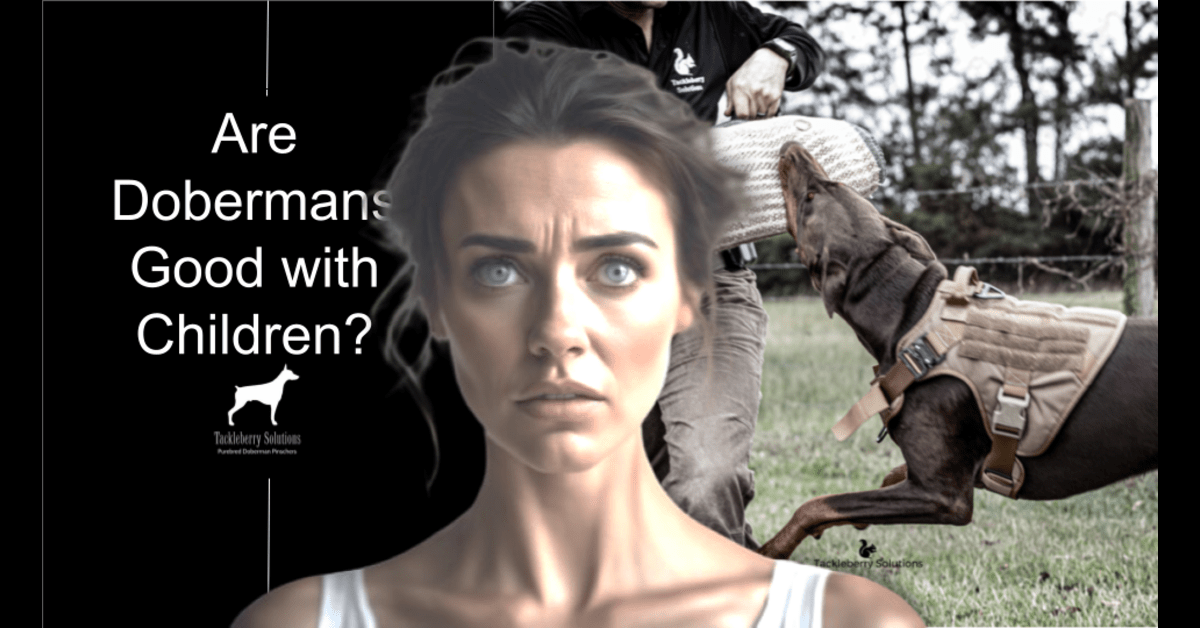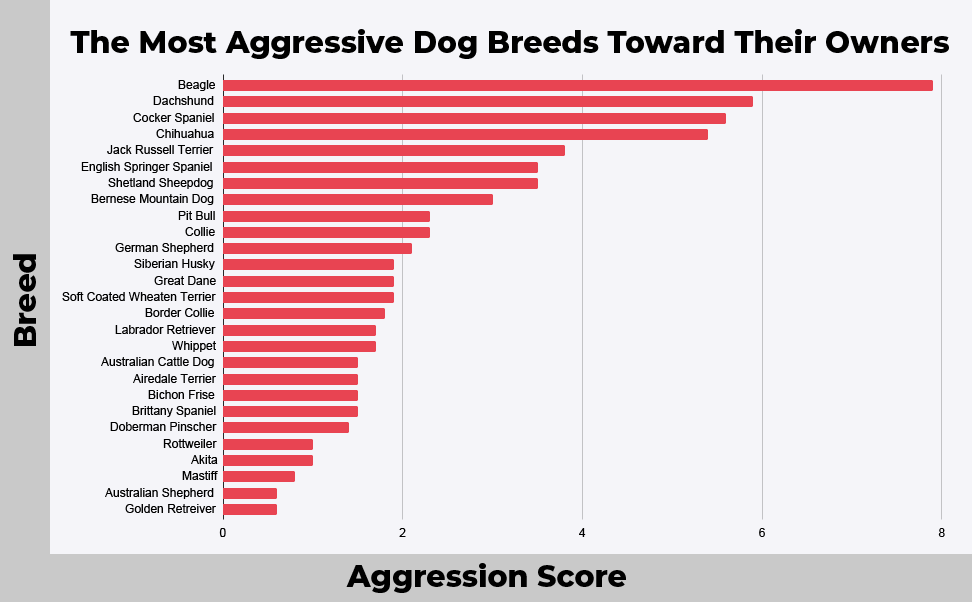The million dollar question: Are Dobermans good with children?
Wednesday, October 12, 2022 is a date that should live in infamy. Tragically, a toddler and a baby were mauled to death and their mother left in critical condition when their 2 beloved dogs of 8 years attacked.
Now stop right there for a second and think about that. 8 years. Significantly, isn't it shocking that 2 loving pets could turn deadly after such a long and close relationship with their family? Indeed, a dog at that age is well established by that point. Likewise, they are fully mature and their personalities are solidified.
Certainly, such an incident leaves one wondering if any canine lover's home is safe. By all means, every aspiring Doberman owner should ask the critical question: "Are Dobermans good with children?"
Are Dobermans Good with Children? 2024 Bite Statistics
Video Chapters:
- 00:43 - The most dangerous dogs of 2024
- 1:22 - List of the most aggressive dog breeds towards their owners
- 1:44 - Qualities in the Doberman that helped me determine personal compatibility with the breed
- 2:08 - Why the Doberman protects their family
- 2:15 - Factors that impact whether a Doberman is good with children
- 2:33 - How to teach your Doberman to respect your child or smaller pets such as chickens or cats
- 4:28 - Respect is mutual, teach your children how to treat animals kindly
- 5:08 - Final conclusions
Have we met?
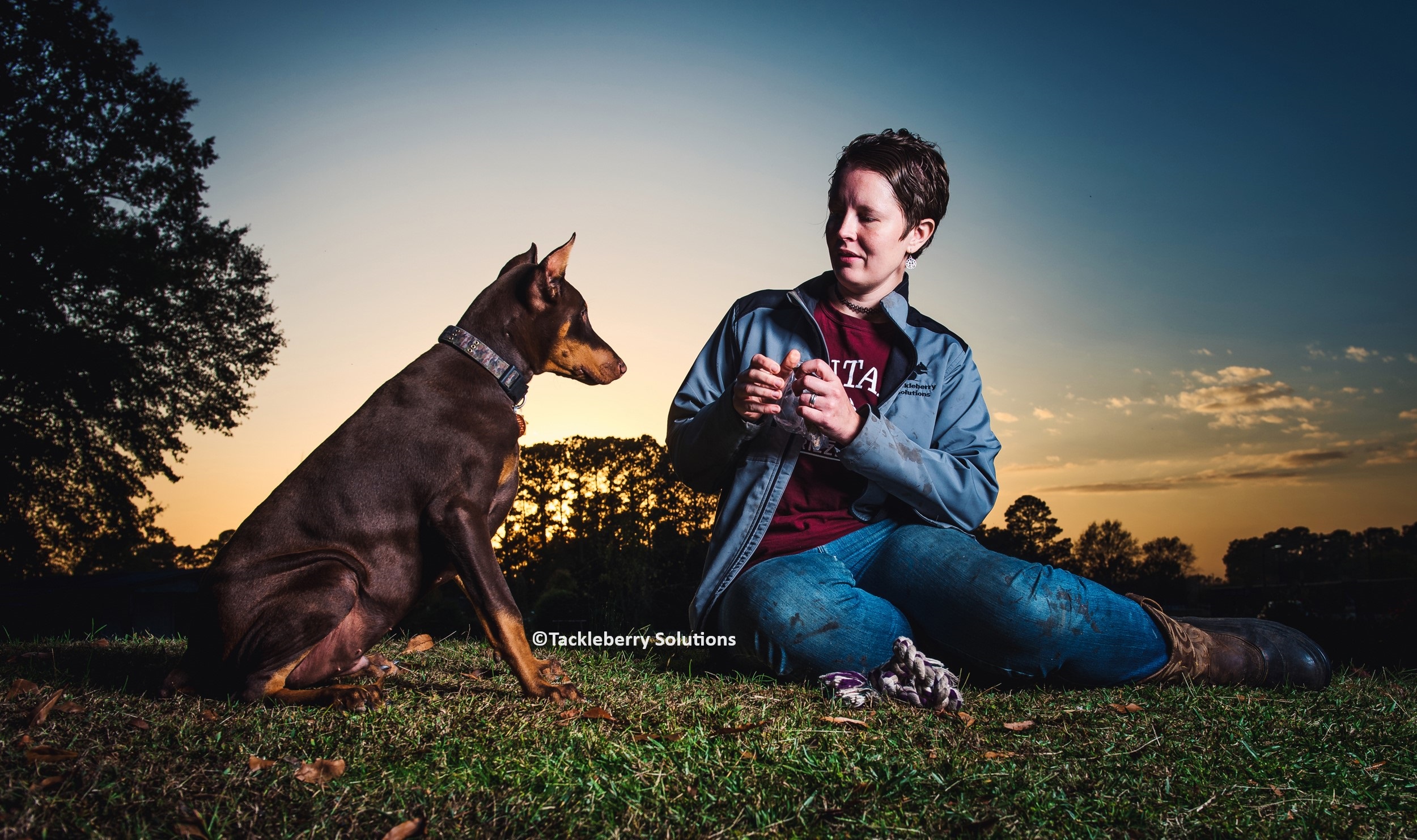
Hello, my name is Amy Arthur. Your Doberman breeder and guide. My goal is to help you determine compatibility and gain the confidence that you would require in order comfortably handle this unique breed.
Above all, your ability to understand the psychology behind the Doberman's needs is a crucial element for excellent ownership. My gift to you, sharing everything I know about them. Indeed, no one should have to rely on blind google searches to uncover the Doberman's secrets.
2024 Dog Bite Statistics
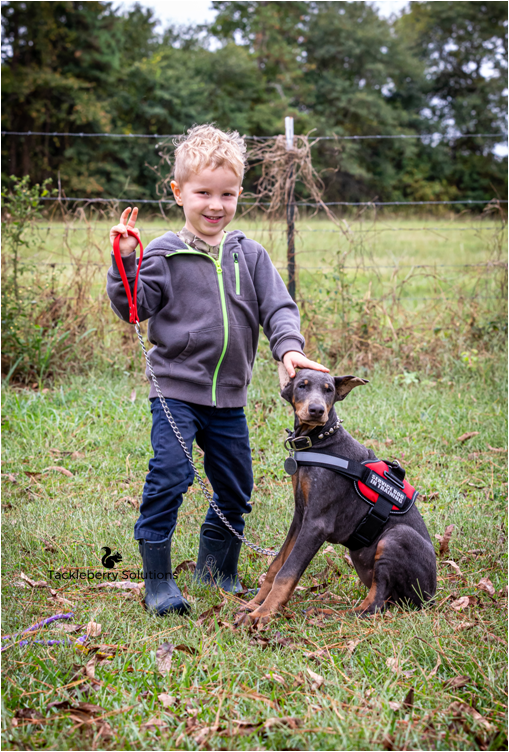
- About 4.5 million people are bitten by dogs each year, most of them children.
- In a 2002 California case, a woman and her husband were tried for second-degree murder after their dogs attacked and killed a neighbor. The woman was convicted of second-degree murder and her husband was convicted of involuntary manslaughter.
- In some states, including California, dog bites fall under strict liability. Injured victims in such states can pursue dog bite claims regardless of the dog’s viciousness or prior history of dog attacks.
Topic: Are Dobermans good with children?
The Most Dangerous Dogs of 2024
Furthermore, the World of Animals Foundation published an article listing the top biting dog breeds for 2024. Their findings are as follows:
- Chihuahua
- Jack Russell Terrier
- Wolf Hybrid
- Dachshund
- Rottweiler
- Cane Corso
- Chow chow
- American Pitbull Terrier
- Bull Terrier
- Akita
- German Shepherd
- Rhodesian Ridgeback
- Doberman Pinscher
- Dogo Argentino
- Siberian Husky
Incidentally, not that in their article, they had clarified that "Dobermans are not naturally aggressive." They went on to explain that "they’ve either been abused, mistrained, or handled irresponsibly (had other than positive training methods). They’re generally just protective of their families and could bite if someone is seen as a threat. Small children should always be supervised around them."
Topic: Are Dobermans good with children?
Dog Breeds Most Likely to Bite Their Owners
Furthermore, take a look at the image below which features a list of dog breeds most often found to bite their owners. Again, notice that the Doberman's records are much lower than several other well-known breeds.
Further Reading: What is the best breed for personal protection?
Personal Experience: Are Dobermans Good with Children?
Indeed, you might be wondering why I've listed all of these statistics first before answering the original question of, "Are Dobermans good with children?" In short, I wanted to establish my standpoint from other sources to help emphasize my message.
Alternatively, if I had just shared my opinion about the breed, this would have not done justice to their truly loving and loyal nature.
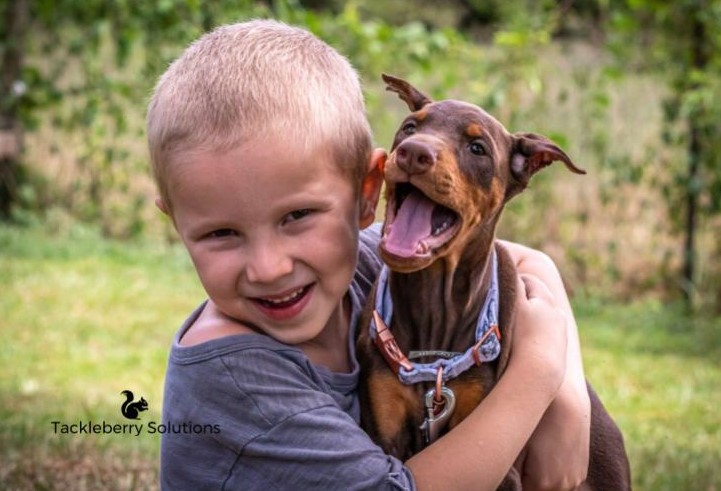
To expound, concerned for my family, we first decided to go with a Doberman because it literally was the only breed that matched exactly what I was looking for in a protection dog.
Firstly, they were smart, protective, had short fur so the grooming would be easier, they didn't drool and had the size and look of what I was seeking.
However, I quickly found out why the Doberman was so protective over their family. Indeed, the love that they had for the safety of their pack was on a level I had never seen before.
Final Critical Points
Article Topic: Are Dobermans good with children?
Critically, weather a Doberman is good with children depends entirely upon their upbringing and their handler. Accordingly, if they are treated with respect and taught with love to recognize the authority of their handler, they are likely to suck you into the world of Doberman lovers, just like they did to me.
Further reading: First-Time Doberman Owner: 3 Overlooked Warnings
Side Tip for Establishing Respect
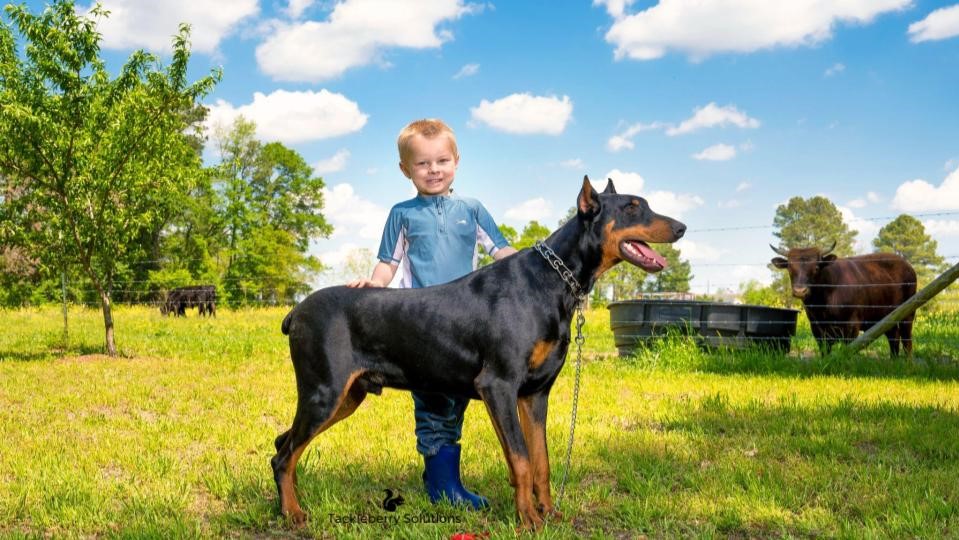
With this is in mind, let me quickly share some advice on how to ensure that your Doberman is good with children (this also works with defenseless animals such as chickens or cats.)
Article Topic: Are Dobermans good with kids?
Don't Discount Nature
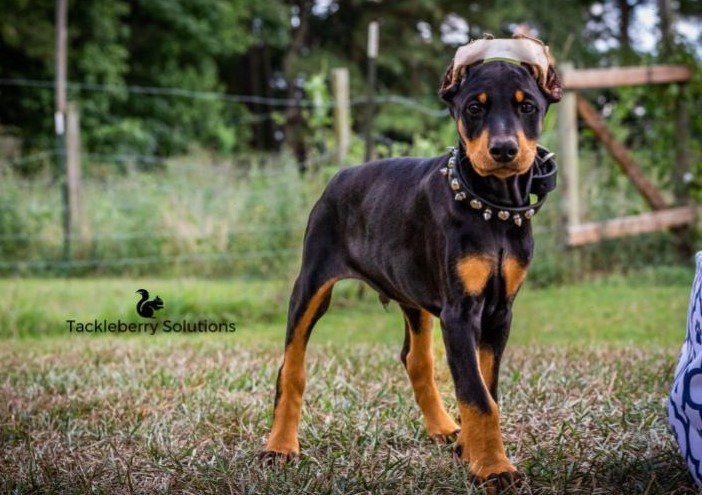
First, keep in mind that puppies start out treating everyone around them (human and canine alike) as equals. As a result, they will play and challenge each other with wrestling as their instincts direct them to practice.
To expound, think of a lion cub. Their play with their siblings is an instinctual directive to prepare them for their own defense and the protection of their pride as an adult.
Likewise, Doberman puppies start out life with the same desire to roughhouse and as a result, establish their own pecking order amongst themselves. Which means that, unless taught otherwise, your child is fair game for play to challenge as an equal.
Further reading: Puppy Nipping: 1 Easy Trick to Teach Your New Puppy Not to Nip
Article Topic: Are Dobermans good with kids?
Teach Your Doberman That Your Child Is NOT To Be Challenged
Critically, this may seem cute at first, but it is important to teach the puppy or dog (whatever age they are) that a child or small animal is NOT their equal.
Side Note: In short, you can do this by closely supervising your Doberman's behavior with the child (or small animal). The second that they initiate play as an equal, you step in and gently, but firmly scold.
Article Topic: Are Dobermans good with children?
Consequently, this teaches the Doberman that the child belongs to alpha and therefore must be treated the same as alpha. As a result, they will still want to love on and play with the child, but it will be done in a much more respectful way and act as a preventative for aggressive behavior towards that child.
Recommended reading: The Worst Alpha Dog Myth Debunked in 8 Minutes
Notably, since the Doberman is such an intelligent breed, I've successfully had young puppies learn to respect my children within a small number of corrections.
Side Note: Consistency is key! Do NOT leave your child's side while they interact with your Doberman until it is clear that they are to treat your child with respect.
Likewise, corrections must be done on the spot, or your Doberman will not be able to understand what they are being corrected for. Consequently, if you are not standing right there, you will not be there in time for them to associate your message with their actions and it will only serve as a source of anxiety for them.
Signs of no respect
Likewise, if your Doberman does the following, they likely consider you an equal (or lower):
- Play rough
- Run into you without looking where they are going
- Jump up
- Try to mouth your hand
- Are slow to obey or frequently ignore you
Side Note: Here's a quick an easy tip for getting your Doberman to stop jumping up on you. (This also helps to establish authority.) Teach your Doberman to "sit" for everything. They want a treat? Sit. Want to go outside? Sit (until you invite them to pass through the door or gate - this also helps prevent accidental escapes.) Want pets? Sit.
You see, when your Doberman jumps up on you, that is the only way that they know of to get your attention. So you must teach them that they do not get attention unless they are sitting. (If they are sitting, they cannot be jumping up on you.) In effect, you are teaching them NOT to do something by teaching them to do something else instead. (This can be applied in a similar manner to prevent leash pulling as well.)
Zoomies
Notably, Dobermans are a high-energy breed that thrive off of regular exercise and love to run. By that same token, Dobermans can easily forget their large size and accidently pummel right over anything in their path in their eagerness to run it out. This includes smaller children. Likewise, a collision can easily be avoided if you start young and teach your Doberman to be aware of where it is running.
Indeed, this goes hand-in-hand with teaching your Doberman to understand its place on the totem pole as mentioned above. While you can do this with an adult, it is much easier to start young. For one thing, they're not as fast when they're little so they're easier to keep up with while you're teaching them. For another, you'll have less learned behaviors to battle against.
In any case, take your Doberman outside where it can run and just stand at attention. If it starts a collision course towards you, gently but firmly take a step towards it and scold. This needs to be done loud enough that it catches the dog's attention and gets them to realize that they need to look where they are going. Repeat. Repeat. Repeat.
Now, to be clear, there is a different between them running towards you for affection, and them running towards you without realizing where they are going. Likewise, be sure to mix up your response accordingly. Reward for engaging with you. Scold for not paying attention. This is especially crucial if you are also teaching the recall phase.
To be honest, I've had to work more teaching males this concept than females. Obviously, personality plays a big factor. But I've found that the females tend to worry about their family more while the males can be a bit on the goofy side. To be clear, such a topic requires an article all it's own, but to summarize: if you're looking for protection, generally go for a female. If you want looks for intimidation, go for a male. I think I've side-tracked enough here. Now, back to my original topic.
Article Topic: Are Dobermans good with kids?
Teach Your Child!
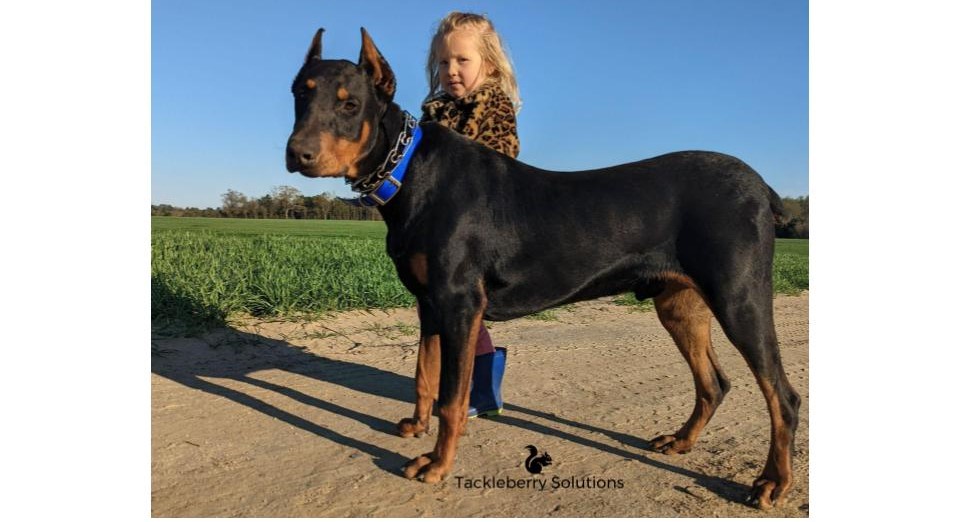
With this in mind, if you really want to ensure that your Doberman is good with children, do NOT allow the child to torment or abuse your dog!
Critically, if you are going to teach your canine that the child belongs to alpha, your child must also learn to conduct themselves so.
To expound, alphas are not bullies! They are the leader. It is their job to take care of the pack. Not to torment or push the boundaries of their subject's patience. Which leads to me share a common saying:
"There are no bad dogs. Only bad owners."
In summary, you are responsible for your Doberman's behavior. Unless your canine is suffering from a neurological ailment, they are not going to just bite without cause. This especially applies to Dobermans.
Is there something I missed?
Please share your thoughts in a comment for other readers.
Further reading: Dogs turning on their owners: What is causing this?

